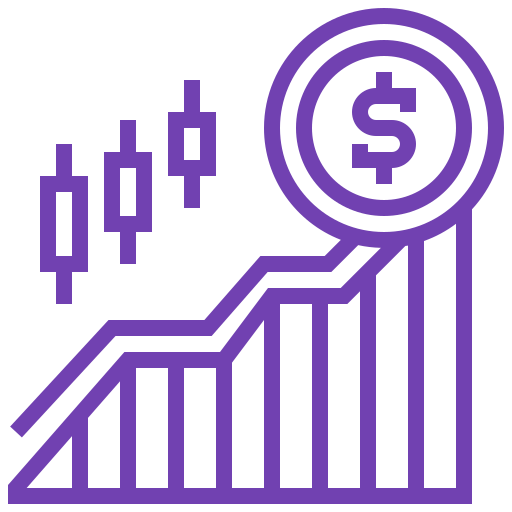- contact@vgoshinfo.com
- Mon - Sat: 10.00 AM - 7.00 PM
We are creative, ambitious, and ready for challenges! Hire Us
We are creative, ambitious, and ready for challenges! Hire Us
Over 15+ years we help companies reach their financial and branding goals. Vgoshinfo is a values-driven technology agency dedicated.
189, Sayee Nagar, 8th St, Virugambakkam, Chennai, Tamil Nadu 600092
+91-80568 48685

Leadership must visibly support the effort.

Companies must dedicate appropriate project leadership and full-time staff.

Processes (such as onboarding or day-to-day usage) must be standardized.


Transformation must involve the entire organization and be cross-function.

Sustainable adoption of the business intelligence and analytics platforms.

Piloting the program to focus on a subset of problems provides lessons.

A supply chain is a network between a company and its
suppliers to produce and distribute a specific product to
the final buyer. This network includes different activities, people, entities, information, and resources.
The supply chain also represents the steps it takes to get the product or service from its original state to the customer.
The term value chain refers to the process in which businesses receive raw materials, add value to them through production, manufacturing, and other processes to create a finished product, and then sell the finished product to consumers. A supply chain represents the steps it takes to get the product or service to the customer, often dealing with OEM and aftermarket parts.
While a supply chain involves all parties in fulfilling a customer request and leading to customer satisfaction, a value chain is a set of interrelated activities a company uses to create a competitive advantage.

Supply chain management is the management of the flow of goods and services and includes all processes that transform raw materials into final products. It involves the active streamlining of a business’s supply-side activities to maximize customer value and gain a competitive advantage in the marketplace.
SCM represents an effort by suppliers to develop and implement supply chains that are as efficient and economical as possible. Supply chains cover everything from production to product development to the information systems needed to direct these undertakings.
Your supply chain is made up of more than just the sum of its parts. The people behind it, including fellow employees, suppliers, contractors, partners, and customers, are all part of your success. But it takes everyone being on the same page, working toward the same corporate goals, to get there. Silos, conflicting metrics, lack of visibility, and poor communication are all hurdles today’s supply chains have to leap over. Improving collaboration, having a central corporate vision, and implementing change management strategies are key.
The supply chain industry’s beginning of operations research, as well as industrial engineering, started with logistics. Fredrick Taylor, the founder of industrial engineering who wrote The Principles of Scientific Management in 1911, targeted the process improvement of manual loading in his work. Operations Research of analytics’ value started during WWII for logistical military operational solutions in the 1940s. Industrial Engineering and Operations Research often attempted to function as separate identities and by using integrated frameworks to address supply chain and logistics issues they have had successes. The industry has begun titling this integration “Supply Chain Engineering.”

II. Historical Evolution of the Supply Chain

Supply chain analytics can help an organization make smarter, quicker, and more efficient decisions.
IDC’s Simon Ellis in The Thinking Supply Chain identifies the five “Cs” of the effective supply chain analytics of the future.
Could COVID-19 be the black swan event that finally forces many companies, and entire industries, to rethink and transform their global supply chain model?
One fact is beyond doubt: It has already exposed the vulnerabilities of many organizations, especially those who have a high dependence on China to fulfill their need for raw materials or finished products.
China’s dominant role as the “world’s factory” means that any major disruption puts global supply chains at risk. Highlighting this is the fact that more than 200 of the Fortune Global 500 firms have a presence in Wuhan, the highly industrialized province where the outbreak originated, and which has been hardest hit. Companies whose supply chain is reliant on Tier 1 (direct) or Tier 2 (secondary) suppliers in China are likely to experience significant disruption, even if, according to the most optimistic reports, conditions approach normalcy in China by June.
As the COVID-19 threat spreads, here are measures companies can take to protect their supply chain operations:
“We have to make decisions with 50% data and the other 50% directed by our purpose and values.” — Supply Chain 50 Member.
Critical to harnessing the universe of supply chain information is an analytics platform that can collect and synthesize data so supply chain leaders can easily:
The Hackett Group’s 2017 Supply Chain Trends study revealed companies unanimously agree that advanced analytics platforms are very important. Based on experience with clients across industries, the following benefits of an advanced analytics program have been identified:
| Cookie | Duration | Description |
|---|---|---|
| cookielawinfo-checkbox-analytics | 11 months | This cookie is set by GDPR Cookie Consent plugin. The cookie is used to store the user consent for the cookies in the category "Analytics". |
| cookielawinfo-checkbox-functional | 11 months | The cookie is set by GDPR cookie consent to record the user consent for the cookies in the category "Functional". |
| cookielawinfo-checkbox-necessary | 11 months | This cookie is set by GDPR Cookie Consent plugin. The cookies is used to store the user consent for the cookies in the category "Necessary". |
| cookielawinfo-checkbox-others | 11 months | This cookie is set by GDPR Cookie Consent plugin. The cookie is used to store the user consent for the cookies in the category "Other. |
| cookielawinfo-checkbox-performance | 11 months | This cookie is set by GDPR Cookie Consent plugin. The cookie is used to store the user consent for the cookies in the category "Performance". |
| viewed_cookie_policy | 11 months | The cookie is set by the GDPR Cookie Consent plugin and is used to store whether or not user has consented to the use of cookies. It does not store any personal data. |